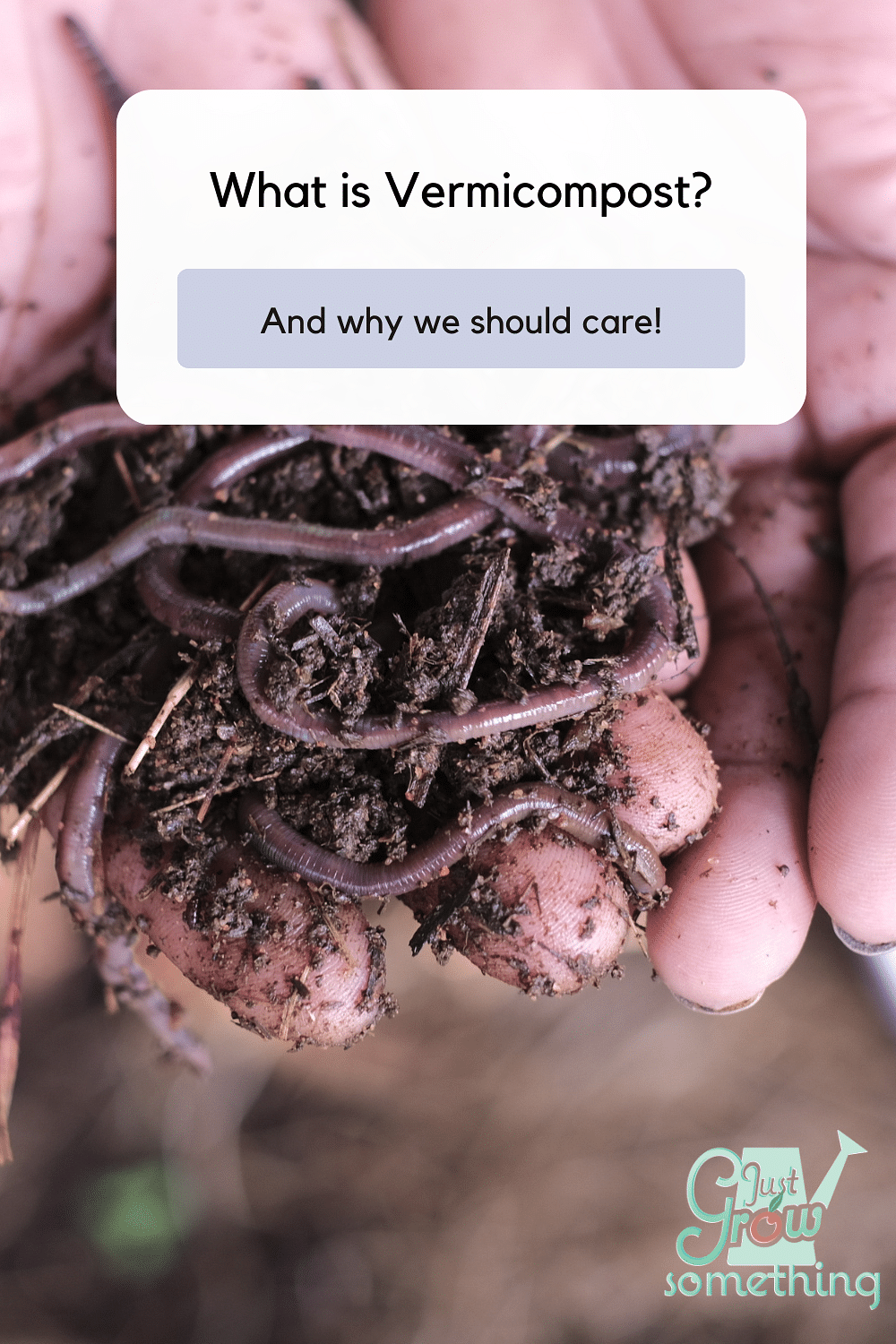
Vermicompost is the product of earthworm digestion and the aerobic decomposition of food waste materials by microorganisms in the worm gut. Unlike a backyard compost pile, this process is all done at room temperature. This produces a rich organic soil amendment that contains plant nutrients and beneficial microorganisms, called worm castings.
 How does this happen? Earthworms have tiny mouths and no teeth. An earthworm will push its pharynx (throat) out, grab microorganisms and little bits of organic matter, and pull them into its mouth. The food is coated with saliva, pushed down the esophagus into the crop, and onto the gizzard, where it is crushed and ground apart. Since it doesn’t have any teeth, this is how that food is broken down. Just like in a chicken, the gizzard of the worm is full of tiny bits of grit that grinds down the organic matter to make it digestible. The food then moves into the intestine, where food is broken down by digestive enzymes. Some of the result of that is passed into the bloodstream for the earthworm to use as fuel to live and the rest passes out as worm poop. These are the worm castings, and they are like black gold for garden soil.
How does this happen? Earthworms have tiny mouths and no teeth. An earthworm will push its pharynx (throat) out, grab microorganisms and little bits of organic matter, and pull them into its mouth. The food is coated with saliva, pushed down the esophagus into the crop, and onto the gizzard, where it is crushed and ground apart. Since it doesn’t have any teeth, this is how that food is broken down. Just like in a chicken, the gizzard of the worm is full of tiny bits of grit that grinds down the organic matter to make it digestible. The food then moves into the intestine, where food is broken down by digestive enzymes. Some of the result of that is passed into the bloodstream for the earthworm to use as fuel to live and the rest passes out as worm poop. These are the worm castings, and they are like black gold for garden soil.
Under ideal conditions, a worm bin population can double about every 2 months. And one pound of these guys can dispose of ½ to 1 pound of kitchen waste every day!
So, why should we care?
If you don’t have a compost pile outside or a compost collection service, this likely means your food waste is going into the garbage. This is a huge problem. EPA data from 2021 shows that food waste is the single most common material landfilled and incinerated in the U.S., comprising 24 percent of landfilled municipal solid waste. Landfills are not intended to breakdown organic matter, like food scraps. It’s an anaerobic environment, which means as the food scraps struggle to breakdown without oxygen, they are producing methane gas.
Having a home worm bin prevents our food waste from going to the landfill. It also prevents all the resources that went into producing that food from going to waste. Creating a useable product from that waste that can then be returned to the soil closes the loop, returning the resources back to where they came and sequestering some of those same carbon emissions back into the earth. All with very little work from us. Let worms do the work!
Ready to start your own worm bin? I talk all about vermicomposting on Episode 106 of the Just Grow Something podcast.
Your friend in the garden,
Karin

